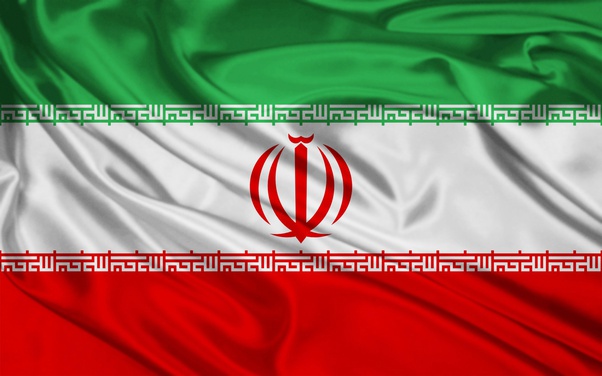Your name is a crucial part of your identity, and it’s the first thing people use to identify and address you. It’s a label that follows you everywhere you go, and it can shape how others perceive you. But why exactly is a name so important? In this blog post, we’ll explore the many reasons why a name holds such significance in our lives.
Why Names are Important: The Significance of Naming
Names are more than just a combination of letters and sounds – they hold great personal, cultural, and historical significance. Our names are unique identifiers, shaping our identities and forming the first impressions others have of us. Names reflect our cultural and familial background, preserving important traditions and legacies.
From a personal perspective, names hold deep meaning, representing our values, beliefs, and aspirations. In this way, names are much more than mere labels – they are integral parts of who we are and the story of our lives. This blog post will explore the various ways in which names are important, examining the role they play in shaping our identities, reflecting cultural diversity, and influencing our success and happiness. So, let’s delve into the significance of naming and discover why names truly matter.
Unique Identifier
Your name serves as a unique identifier, separating you from everyone else. It sets you apart and helps people distinguish you from others with similar or identical names. It’s a label that’s specific to you and can’t be duplicated. This uniqueness is what makes your name so important and so personal.
First Impression
Your name can often make a big impact on the first impression you leave on someone. Names can convey cultural, ethnic, and gender identity, and people often make unconscious assumptions based on a person’s name. That’s why it’s important to choose a name that you feel comfortable with and that accurately represents who you are. For example, a person named Jasmine might be perceived as more exotic and adventurous than a person named Emily, while a person named Alexander might be perceived as more traditional and serious than a person named Jake. Of course, these perceptions can be influenced by many factors, including a person’s appearance, behavior, and culture, but a name can still play a significant role in shaping first impressions.
Personal Significance
For many people, their name holds a great deal of personal significance. It may have been passed down from a family member, hold a special meaning in a different language, or be associated with a cherished memory. Regardless of the reason, a person’s name often carries an emotional weight that goes beyond just being a label. A name can be a source of pride, a symbol of heritage, or a reminder of loved ones. When someone says your name, it’s a personal and intimate connection, and it can evoke strong emotions and memories.
Professional Identity
In professional settings, your name can play a critical role in how you’re perceived and the opportunities that come your way. It’s often used on business cards, email signatures, and professional profiles, and can be a key factor in how others remember you and the work you do. In some cases, a person may choose to go by a different name professionally, either to avoid discrimination or to help them stand out in their field. For example, a person named Elizabeth might go by Liz in a professional setting, or a person named Mohamed might choose to use the more Anglicized version of their name, such as Mo. This can help a person build their professional identity and brand, and can make them more memorable to colleagues and clients.
Naming Conventions and Traditions
Names are also an important part of cultural and social traditions. In many cultures, names are chosen to reflect a person’s family history, religious beliefs, or cultural heritage. For example, in some cultures, the first born son is named after the paternal grandfather, while in others, the first born daughter is named after the maternal grandmother. In many cultures, names are also chosen to reflect religious or spiritual beliefs. For example, many Muslim parents choose names that are mentioned in the Quran, while many Hindu parents choose names that are associated with Hindu gods and goddesses. These naming conventions and traditions can give a person a strong sense of connection to their culture, religion, and heritage, and can play an important role in shaping their identity.
Representation and Inclusivity
Names are also important because they represent and reflect the diversity and inclusivity of our society. Different cultures, ethnicities, and languages have their own unique naming traditions, and this diversity is an essential part of what makes our world rich and vibrant. By choosing a name that represents your heritage, beliefs, and culture, you can help to preserve and celebrate these traditions for future generations.
Moreover, inclusivity in naming is also crucial for people who are marginalized or discriminated against. For example, some people choose to go by a name that better reflects their gender identity, sexual orientation, or cultural background, as a way of reclaiming their identity and feeling more comfortable and confident in themselves. This can be especially important for people who are members of communities that are underrepresented or marginalized in mainstream society.
To get idea about some great human name click here.
To find some great organizations name idea click here
In conclusion, names play an important role in shaping our identities, both personal and professional. They serve as unique identifiers, can make a lasting first impression, hold personal significance, reflect cultural traditions, and represent the diversity and inclusivity of our society. Whether you choose a name that reflects your heritage, cultural background, or personal beliefs, it’s a crucial part of who you are and will stay with you throughout your life.
In summary, the importance of a name lies in its ability to serve as a unique identifier, shape first impressions, hold personal significance, reflect professional identity, celebrate cultural traditions, and promote inclusivity. So, choose your name wisely, and never underestimate the power of a good name.
















































Add Comment